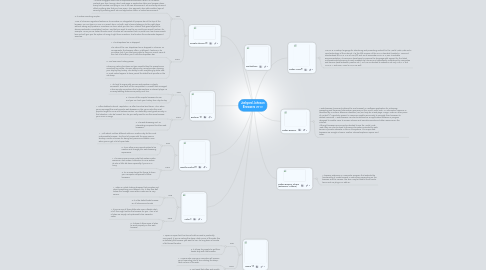
1. Marketshare
2. Safari 6
2.1. Pros
2.1.1. 1. Safari is a sleek looking browser that provides just about everything you’d expect it to. It also flies well below the average virus writer’s radar and is very secure.
2.1.2. 2. It is the default web browser on all iPhones and iPods
2.2. Cons
2.2.1. 1. If you’re one of those folks who uses Adbode Flash a lot, this might not be the browser for you. Also, a lot of sites are simply not optimized to be viewed in Safari.
2.2.2. 2. It doesn't allow some of sites to work properly on this web browser.
3. Google Chrome 26
3.1. Pros
3.1.1. 1. It won't crash - Chrome's biggest draw is its multiprocess architecture, which, in a nutshell, protects you from having a bad Web page or application take your browser down. Every tab, window, and plug-in runs in its own environment--so one faulty site won't affect anything else that you have open. This approach also adds another layer of security by isolating each site and application within a limited environment.
3.1.2. 2. It makes searching simpler. -One of Chrome's signature features is its Omnibox, an integrated all-purpose bar at the top of the browser. You can type in a URL or a search term--or both--and Chrome takes you to the right place without asking any questions. Omnibox can learn what you like, too--a talent that goes beyond the obvious automatic completion function. Say that you want to use the PCWorld.com search function, for example. Once you've visited the site once, Chrome will remember that PCWorld.com has its own search box and will give you the option of using it right from Omnibox. The function thus automates keyword searches.
3.2. Cons
3.2.1. 1. The dropdown bar is dropped. The idea of the URL dropdown bar is dropped in Chrome. To compensate, the browser offers "intelligent" features in its Omnibox; but if you like being able to see your recent URLs at the click of a button, you'll miss the dropdown bar.
3.2.2. 2. You lose some history power. Chrome's History functions are less versatile than the powerhouse ones built by Firefox. Chrome offers only a simple screen showing your day-by-day history. The ability to sort everything by date, site, or most visited appear to have joined the distaff and spindle on the ash heap.
4. Mozilla Firefox 20
4.1. Pros
4.1.1. 1. With about a zillion different add-ons, Firefox is by far the most customizable browser. That kind of comes with the open source territory. Firefox is known for being fairly secure and stable, even when you’ve got a lot of open tabs.
4.1.2. 2. It can allow many opportunities to be creative and change your web browsing experience.
4.2. Cons
4.2.1. 1. The same open source code that makes Firefox awesome, also makes it attractive to virus writers. It’s also a little bit slow, especially if you’re in a hurry.
4.2.2. 2. It's a easier target for things to harm your computer compared to other browsers.
5. Explorer 10
5.1. Pros
5.1.1. 1. It’s hard to argue with success and Explorer is plenty successful. Even with all the competition, Microsoft has managed a few security innovations that make Explorer a relevant player. IE 8′s easy tabbing features are pretty nice, too.
5.1.2. 2. It's one of the simpler browsers to use, and you can track your history from day-to-day.
5.2. Cons
5.2.1. 1. Often dubbed Internet “Exploder,” IE often has slow load times. Also, when you’re amongst the most popular web browsers in the, you’re also the most popular target for virus and malware writers. You definitely need good security in that situation. Let’s be honest, too: do you really want to use the same browser your mom is using?
5.2.2. 2. The web browsing isn't as interesting compared to other web browsers.
6. Opera 12
6.1. Pros
6.1.1. 1. Opera is super fast, has tons of add-ons and is practically virus proof. If you’re visiting the deep, dark corner of the web, this is definitely the browser you want to use. It’s long been a favorite of bit torrent fanatics.
6.1.2. 2. It allows for people to get their hands dirty with the browser.
6.2. Cons
6.2.1. 1. Anyone who uses your computer will assume you’re spending lots of time visiting the deep, dark corners of the web.
6.2.2. 2. Not used that often and usually forgotten in web browser conversations.
